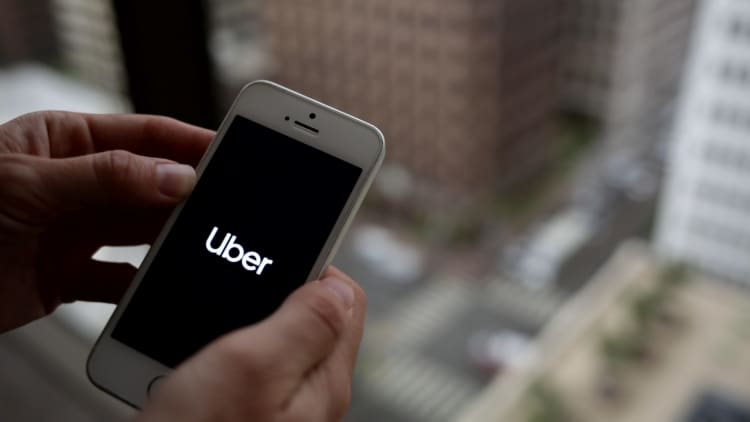Uber executives dangled a new and attractive profitability target in front of analysts on its earnings call Monday, but analysts were skeptical and pressed for more details, which Uber did not provide. Investors apparently share the skepticism, sending the stock down 9.9% on Tuesday.
CEO Dara Khosrowshahi told analysts the company is now targeting "total company EBITDA profitability for the full year 2021." That is exactly the type of goal analysts have been asking for as they've questioned how Uber can continuously sustain losses topping $1 billion even as it favors growth. Khosrowshahi signaled a shift from the grow-at-all-costs mindset on the call, saying growing fast "was absolutely the right set of priorities for the time. Our priorities are changing."
But when analysts clambered for details, Uber delivered little more insight. For example:
Which new businesses will drive profitability? Morgan Stanley analyst Brian Nowak asked the executives to share the "biggest sources of leverage" they see in reaching the new target.
CFO Nelson Chai said Uber is "still in the middle of our planning mode" but that the company is "investing in a number of different bets" such as e-scooters and Freight (shipping) and expects the market to further rationalize.
How big does Uber have to get to be profitable? Goldman Sachs analyst Heath Terry asked if there is "a level of revenue or a level of scale that is assumed in that math for the company that you'd be willing to share that's implied for that degree of profitability?"
Chai did not answer the question directly but instead said that Uber's corporate overhead would grow more slowly than it has in the past, and that "insurance costs and costs like that" would become a smaller percentage of costs. At the same time, he acknowledged the challenge, saying, "We don't think there's a big magic bullet. We're just continuing to grind it out quarter over quarter."
How profitable is Eats in different locations? Barclays analyst Ross Sandler asked how far apart different markets are in terms of profitability for Uber's Eats food-delivery business.
Chai said "the barbell is pretty wide" between some places but ultimately profitability comes down to a city-by-city evaluation in some cases, not country by country.
How does Uber Rewards play in? Raymond James analyst Justin Patterson asked for more detail on the company's loyalty program, Uber Rewards, and how that translated into increased engagement.
Khosrowshahi said, "In terms of our forecast going forward, we think that increasing customer engagement, deepening loyalty, and being more efficient in terms of customer acquisition costs and segmentations absolutely are a part of the path to profitability," Khosrowshahi said.
'Not to beat the dead horse here...'
After several questions on profitability, one analyst acknowledged the repeated questioning.
"Not to beat the dead horse here on Eats, but does profitability in 2021 the way you're defining it require profitability or at least breakeven in the Eats business by that date? Or does it just basically assume somewhat of the improving environment?" asked SunTrust Robinson Humphrey analyst Youssef Squali.
"So, again, we don't want to get too stuck on 2021," Chai responded, saying it's still something they're "working through."
"What I would tell you, it does not predicate that Eats has to be either profitable or breakeven on an EBITDA margin basis. The commentary we made was on a consolidated basis for all of Uber, and that is really what the target is. And so, I don't want to get too detailed in terms of each of the lines, but it does not necessarily predicate that Eats has to be profitable or breakeven in 2021," Chai said.
Khosrowshahi stressed that Uber's profitability target shouldn't serve as a stand-in for guidance.
"These are targets at this point," he said. "But I will tell you that we believe that we will be in a position to deliver very strong both top-line and bottom-line growth as a company at scale. There will always be trade-offs that we have to make, but we're prepared to make those trade-offs. And I think those kinds of tough trade-offs actually are positive for the culture of the company."
WATCH: Why Uber is losing money and what it will take to become profitable



